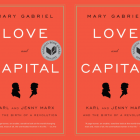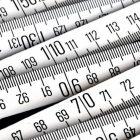Why I’m Not On Twitter Yet
Last fall, when I sold my debut story collection to Grove/Atlantic, a smart friend whose book had just come out (and was doing extraordinarily well) wrote to encourage me to get on Twitter, stat. He said it was far and away the best place to meet book people and readers. He said: “Make sure you start well before the book’s release date so that you can build a following and people know you’re genuine and not just pushing your book.”
As of today, my book comes out in almost exactly nine months. March 5th, 2013—my son’s birthday, in fact. (How apt the book-pregnant metaphor, in my case!) Not a day goes by that I don’t have a slight moment of panic about Twitter. Will the book sell, if I’m not personally tweeting about it? Will people even know about the book? Will readers interpret the fact that I don’t tweet as snobbishness? Will they assume I hate Twitter, or that I’m technologically inept, and therefore (gulp) old, with nothing worthwhile to say to the next generation?
I worry about what not promoting myself via Twitter could mean for my career. I can’t remember anyone saying this outright, but somewhere along the way I’ve absorbed this fact: if your first book doesn’t sell, there likely won’t be a second. From a recent Salon piece: “…not to curate your brand, to collect followers and friends, is to limit one’s chances to have a career.”
But I haven’t signed up for Twitter yet. I think about it all the time. I feel a bit like Prufrock, circling the outskirts of the party, burdened by an overwhelming question: Do I dare?
I want to tell you why this is such a struggle for me. But if I open up to you, and show you the real tensions born of the ugliness of my addictive nature, the fierceness of my love for my kids, and the desperate desire to protect the quiet, slow space I need to keep writing new material, will you still read my book?
If you read it, and like what you read, will the fact that you can’t tag me in a tweet about it preclude your tweeting about it?
I’m not unaware of my hypocrisy here: I want you to tweet about my book; I don’t want to be on Twitter. Like the guy who wants everyone to have health insurance but doesn’t want the government to subsidize any of it; the eleventh hour employee who expects the same pay as the workers who’ve been at it since dawn.
Please understand: this isn’t a rally cry against Twitter, or social media in general. I’ve been on Facebook since 2008 and love it, probably too much. I (obviously) enjoy blogging. I maintain a website. I have plenty of writer friends for whom Twitter proves inspirational, informative, and just plain fun; who are able to work deeply and effectively while following, retweeting, and sending out Twitter updates of their own. I recognize and appreciate the ways social media forums have recalibrated the writer/reader relationship—the conversation now two-way and ongoing. A gift, to readers and to writers.
So I don’t want to talk about Twitter as a medium per se; I want to talk about my own fears of incompatibility with the medium. Given the exigencies of my personality, signing up for Twitter straight-up scares me.
I want to tell you why.
And then I want to hear what you have to say—because I’m open to persuasion.
*
I have an addictive and compulsive personality. I’m only beginning to come to terms with this fact. It manifests in different ways, some of them less harmful than others. I’ve been a nail biter my entire life. My left pinkie nail will never look normal again because of how badly I’ve treated it over the years. In public, I hide it beneath a Band-aid.
I used to be addicted to nasal spray. I broke the habit only by pretending to use it. The bottle was empty, but I went through the spraying motion anyhow. (It worked.)
I’ve struggled with other forms of addiction I can’t talk about here, habits that have hurt the people I love. And I struggle with Internet addiction. Once I’ve opened my email and/or Facebook, I can get lost in checking for the rest of the day, especially if I put a post up. Who “liked” it? Who commented? I once deactivated my account, but people worried. A friend called to make sure I hadn’t been killed in an accident, my family quietly deleting my account; others wrote to ask why I’d unfriended them.
Sometimes I ask my husband to change my Facebook login. Then I come up with some pressing reason I need to get on, and badger him to tell me the password.
If I send an email, especially one that involves writing, I’ll compulsively check for a response. No matter what I’m doing, if I hear the little ding, or see the red circle on the mail stamp, I’m compelled to check. People have said: You are so good about responding to emails—it’s almost always instantaneous! I want to say: it isn’t good. Not by a long shot.
John Cheever wrote in his journals that his goal was to make it to 11 a.m. without sneaking a drink. I already struggle—a daily battle—to avoid opening the laptop first thing each morning. But I find myself bargaining: “just one check, and then you’ll close it for the day and work.” Or I’ll come up with excuses: “You need to research this, you can’t keep writing until you’ve Googled xyz.” Or I’ll come up with little rewards for myself: “If you write for an hour, you can check email/Facebook.” And I’ll write dutifully, then check…and fall down the rabbit hole all over again.
Sometimes I catch myself thinking in status updates. I’ll see a hydrangea bush thick with blossoms, but instead of just enjoying it in solitude, I’ll go grab my camera so I can post the picture later.
The day this essay goes live, I’ll check for comments at least twice an hour.
Sitting here writing this, I’ve switched over to Facebook seven times.
*
Some days I have to get in my car and drive away from my laptop. I have an old-fashioned cell phone—calls and texts only—so that at least when I’m away from the computer, I’m off the grid.
You see where I’m headed. If I already struggle this way—if I lack the discipline to get my two pages a day in, if I’m losing this much creative energy to Facebook/blogs/email—I’m terrified of what joining Twitter will unleash.
And then there’s my family.
I have four children. Only other parents of teens will understand what a battle it is—daily, hourly—to get them to disconnect from their devices and be present. They move from screen to screen throughout the day, almost unconsciously, it seems. I tell my daughter: time to get off Facebook and do homework. She logs out, picks up her phone and checks for texts. Then she pulls out her iPad to start homework. (Her school—a progressive, college prep school in Chattanooga—requires students to own iPads. It’s completely paperless. No more books. No more bookstore. Don’t get me started.) First she fires up the music on iTunes or Pandora. She opens her Kindle app and starts reading. Right now it’s Brave New World. I walk away for ten minutes, come back – and she’s got her Tumblr open. Or she’s checking email. Or she’s back on Facebook.
Why aren’t you reading, I say. She switches back to the Kindle, still open behind the other pages.
And so it goes. My own struggle played out in front of me.
Hear me: I want my kids to know how to use technology responsibly; to develop at young ages the discipline I obviously lack. Technology is the future. I get it. I can’t take away their phones/computers/iPads because they must learn to navigate. I’d be doing them a grave disservice, if I simply said “no more” and removed all temptation. But it’s increasingly difficult to get them to do what I call the “real” things: ride a bike, climb a tree, have a conversation with a friend (not on FaceTime or Xbox Live).
At another school in town, a number of boys were suspended last week because they were tweeting some pretty awful (read: disgusting) things about a female teacher—during class. I can’t imagine how difficult social media must be for teens, who often lack the foresight and impulse-control and life experience to understand how dangerous instantaneous communication can be, especially in emotional moments. So, as a family, we’ve drawn the line at Twitter.
Can I tell my teens they’re not allowed to tweet, if I’m doing it? I could argue that it’s different: my account would be for work, while theirs would be for entertainment.
But would that be true?
*
And what about my reading/writing life? To engage deeply with a literary text requires a brain that is in some sense prepared: open, receptive, able to shut out noise and lose itself for an extended period of time. Lately, when I tune inward—at the beginning of a yoga class, say—I find my brain is on hyper-drive: a frenetic flashing among images, a jump-cut progression of thoughts. Especially after a day online.
And then there’s the creative work to be done. The stories lined up in my head. Some days they whisper: breathe life into us. Other days they shout: what the hell are you waiting for? Over and against these voices: Promote yourself. Network. Be accessible. You owe it to your audience. You owe it to your publisher.
But isn’t what I owe my audience and publisher—please correct me if I’m wrong—more work? Don’t I owe it to myself?
Finally, there’s this, from whip-smart critic Roxane Gay: “Writers feel this ‘market pressure’ to ‘network’ so they create social networking presences they have no idea how to use, that they have no interest in using, and then those presences languish and make the writer look like they don’t give a damn.”
If I join Twitter right now, it’ll be because I feel this ‘market pressure.’ And what will happen next will be one of three things: 1) I won’t use it in a way that’s authentic; 2) I won’t use it at all; or 3) the most likely scenario: I’ll transfer my addictive tendencies to Twitter. And wouldn’t any one of those outcomes be far worse than not joining to begin with?
Isn’t it better to just be straight with you, tell you what I’m afraid of, hope you’ll understand, and find me on Facebook? Or send me an email?
I promise I’ll respond. Probably within seconds.
Dear Reader: if you look for me on Twitter and don’t find me there, it won’t be because I hate social media, or think I don’t need it, or don’t care what you think about my work. It certainly won’t be because I don’t want to be there.
It will be the opposite.
I know this looks like fear.
Someone talk me out of it.



